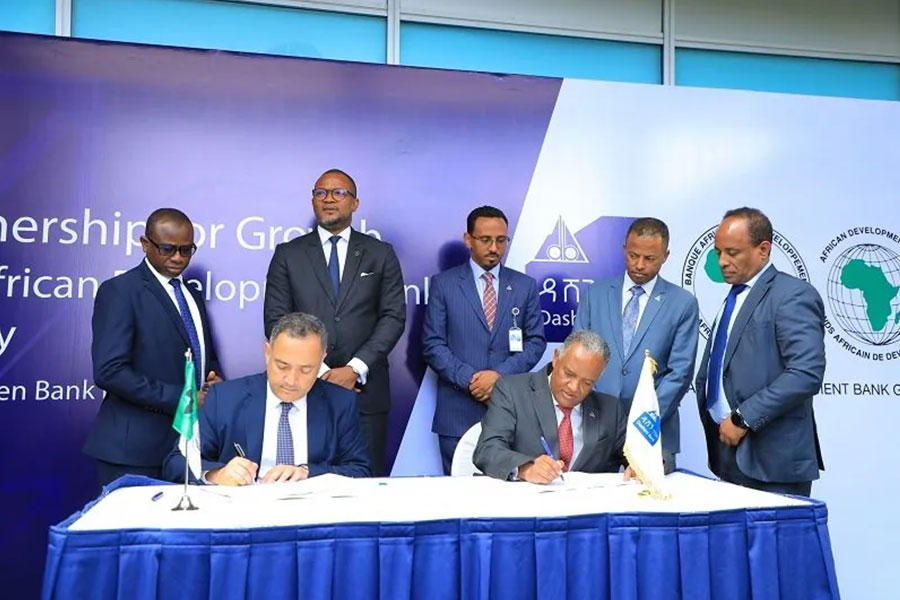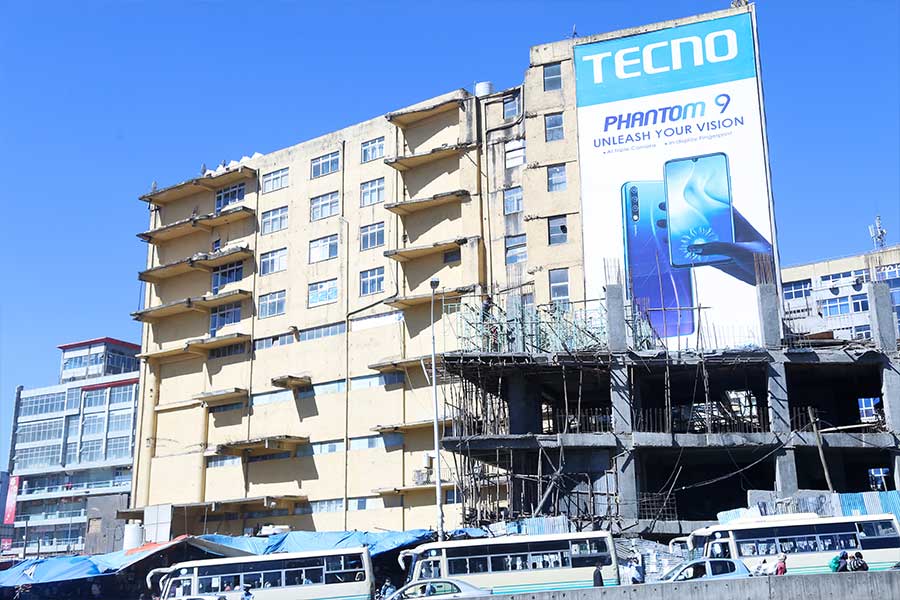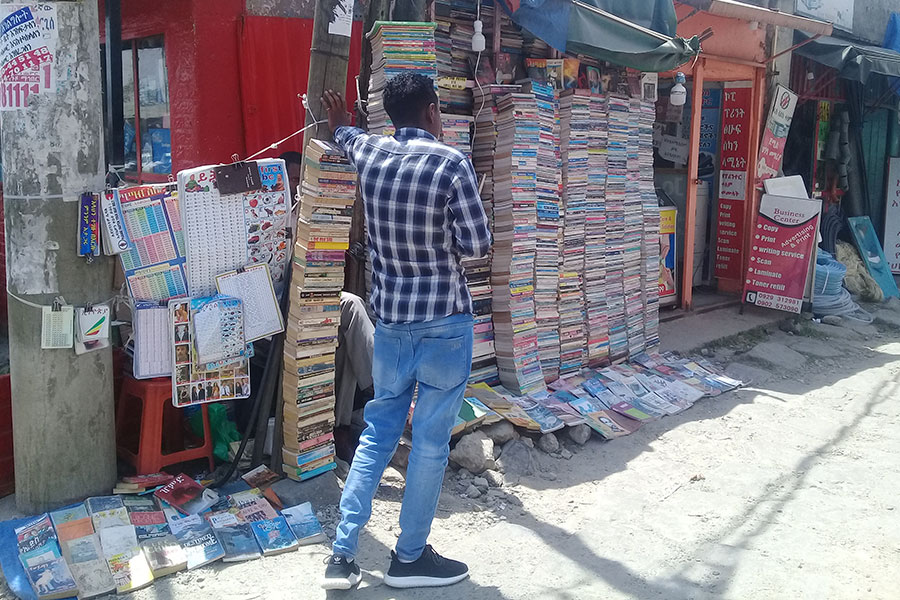
Life Matters | Jan 14,2023
Feb 10 , 2024
By Adam M. Jibril
Over three millennia ago, the ancient Chinese military strategist Sun Tzu espoused the wisdom of leaving an escape route for besieged enemies. It is a philosophy that resonates with the harrowing experiences of the people of Somaliland.
In their quest for refuge from the brutalities of Somalia's regime, Somalilanders have undertaken three significant migrations to Ethiopia, fleeing the savagery of a government obsessed with the concept of 'Greater Somalia.' This vision, however, was marred by authoritarianism, where justice and human rights were blatantly disregarded by the Siyad Barre regime and further undermined by Mogadishu's corrupt elite.
The initial mass exodus, known as the "first great escape", occurred in the early 1980s when Somaliland's vanguard, composed of military officers, intellectuals, artists, and politicians, sought sanctuary in Ethiopia. This was a period of mobilisation for democracy and human dignity, catalysed by the oppressive conditions under Somalia's dictatorial governance. Ethiopia, standing alone in its willingness to provide refuge, became a vital base for the Somali National Movement (SNM) to regroup and strategise against Mogadishu's tyranny, despite the widespread support from much of the Middle East for the Barre regime.
A subsequent and more massive wave of refugees marked the "second great escape" during 1984-85, driven by the genocidal violence and destruction unleashed by Somalia's armed forces. This exodus left an indelible mark of suffering on the Somaliland people, with countless civilians fleeing their bombarded homes towards the border with Ethiopia. Here, they found solace and support from the Ethiopian government and its people at a turning point in the region's history and the Somalilanders' struggle for survival.
The annals of escape continue with the ongoing "third great escape", a footprint of the persistent hostilities and ambitions of Somalia-irredentism that have plagued Somaliland. The current migration is not merely a reaction to recent invasions but a reflection of a historical pattern of aggression aimed at eradicating Somaliland's quest for democratic statehood. These actions, rooted in a totalitarian ideology that opposes democracy, equality, and human rights, have led to widespread destruction and loss of life, all in the pursuit of a unified Somalia entity — a vision that has also found resonance in contemporary political discourse, as seen in the advocacy by some international figures.
The experiences of these three significant migrations are symbolic of a broader struggle facing the Horn of Africa, where the aspirations for peace and democracy conflict with the ambitions of antidemocratic forces, including religious extremism. Despite the threat posed by extremism, its lack of a coherent political vision suggests an eventual decline in influence, paving the way for more democratic and cooperative regional dynamics.
A notable development in this context is the Memorandum of Understanding (MoU) signed with Ethiopia, representing a historical watershed. This agreement transcends war propaganda, symbolising a new cooperation and mutual respect era. It represents a strategic shift towards regional economic, cultural, and political integration, promising a path towards unity, democracy, and modernisation. This cooperative framework should be seen as a significant step in altering the regional landscape, offering a counter-narrative to the cycle of conflict and opening avenues for economic development and political stability.
Such developments are crucial not only for the immediate welfare of the people directly involved but also for the broader geopolitical stability of the Horn of Africa. The strength of the Somaliland people, their pursuit of democracy in the face of authoritarian aggression, and the evolving cooperative ties with Ethiopia should offer valuable lessons in regional politics. They show the importance of solidarity, strategic alliances, and the pursuit of democratic principles in overcoming the challenges posed by totalitarian ideologies and in promoting a more peaceful and integrated regional order.
PUBLISHED ON
Feb 10,2024 [ VOL
24 , NO
1241]


Life Matters | Jan 14,2023

Editorial | Oct 10,2020

Radar | May 03,2025

Radar | Aug 26,2023

Editorial | Dec 04,2022

Radar | Dec 12,2020

Radar | Feb 25,2023

Fortune News | May 04,2025

My Opinion | Oct 21,2023

Viewpoints | Aug 08,2020

Photo Gallery | 180222 Views | May 06,2019

Photo Gallery | 170419 Views | Apr 26,2019

Photo Gallery | 161439 Views | Oct 06,2021

My Opinion | 137261 Views | Aug 14,2021

Dec 22 , 2024 . By TIZITA SHEWAFERAW
Charged with transforming colossal state-owned enterprises into modern and competitiv...

Aug 18 , 2024 . By AKSAH ITALO
Although predictable Yonas Zerihun's job in the ride-hailing service is not immune to...

Jul 28 , 2024 . By TIZITA SHEWAFERAW
Unhabitual, perhaps too many, Samuel Gebreyohannes, 38, used to occasionally enjoy a couple of beers at breakfast. However, he recently swit...

Jul 13 , 2024 . By AKSAH ITALO
Investors who rely on tractors, trucks, and field vehicles for commuting, transporting commodities, and f...

Nov 1 , 2025
The National Bank of Ethiopia (NBE) issued a statement two weeks ago that appeared to...

Oct 25 , 2025
The regulatory machinery is on overdrive. In only two years, no fewer than 35 new pro...

Oct 18 , 2025
The political establishment, notably the ruling party and its top brass, has become p...

Oct 11 , 2025
Ladislas Farago, a roving Associated Press (AP) correspondent, arrived in Ethiopia in...

Nov 2 , 2025
The National Bank of Ethiopia (NBE) has scrapped the credit-growth ceiling that had s...

Nov 2 , 2025 . By SURAFEL MULUGETA
The burgeoning data mining industry is struggling with mounting concerns following th...

Nov 2 , 2025 . By YITBAREK GETACHEW
Berhan Bank has chosen a different route in its pursuit of a new headquarters, opting for a transitional building instea...

Nov 2 , 2025 . By BEZAWIT HULUAGER
Nib International Bank S.C. has found itself at the epicentre of a severe governance...